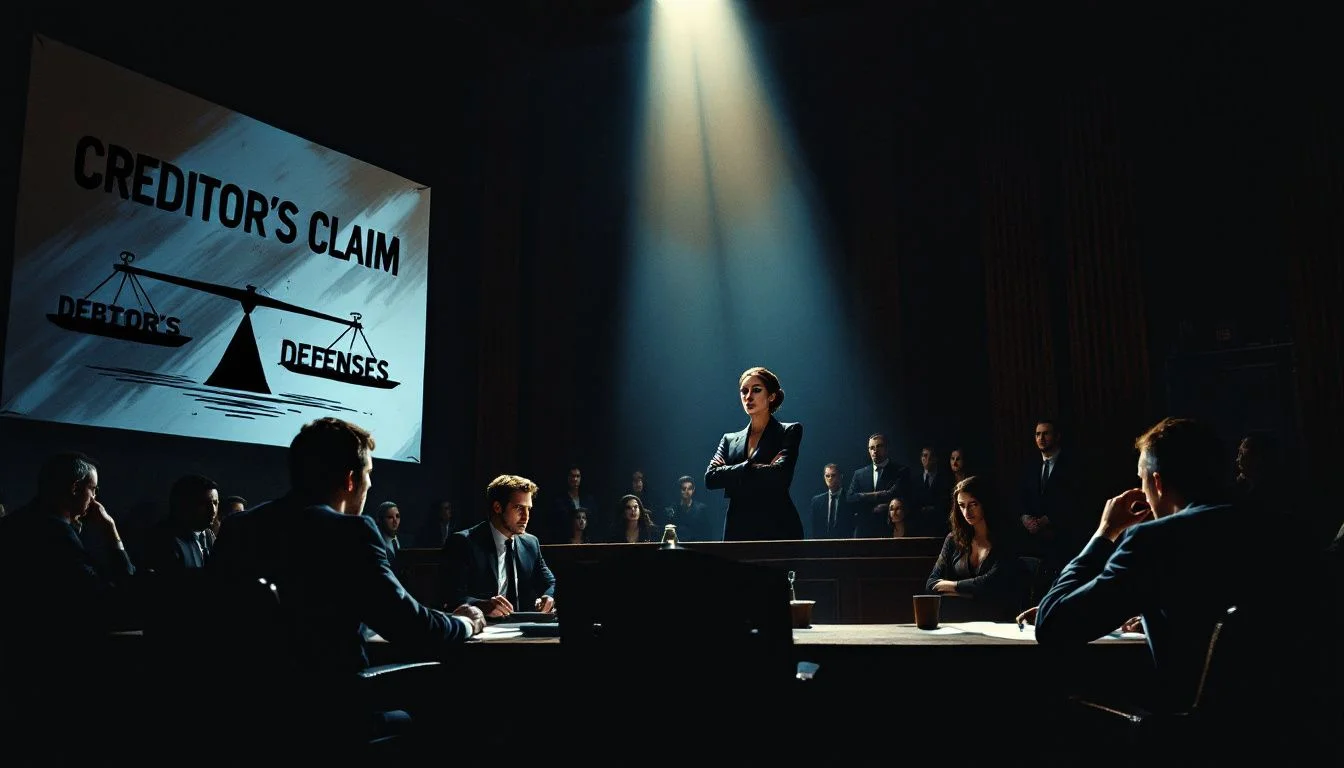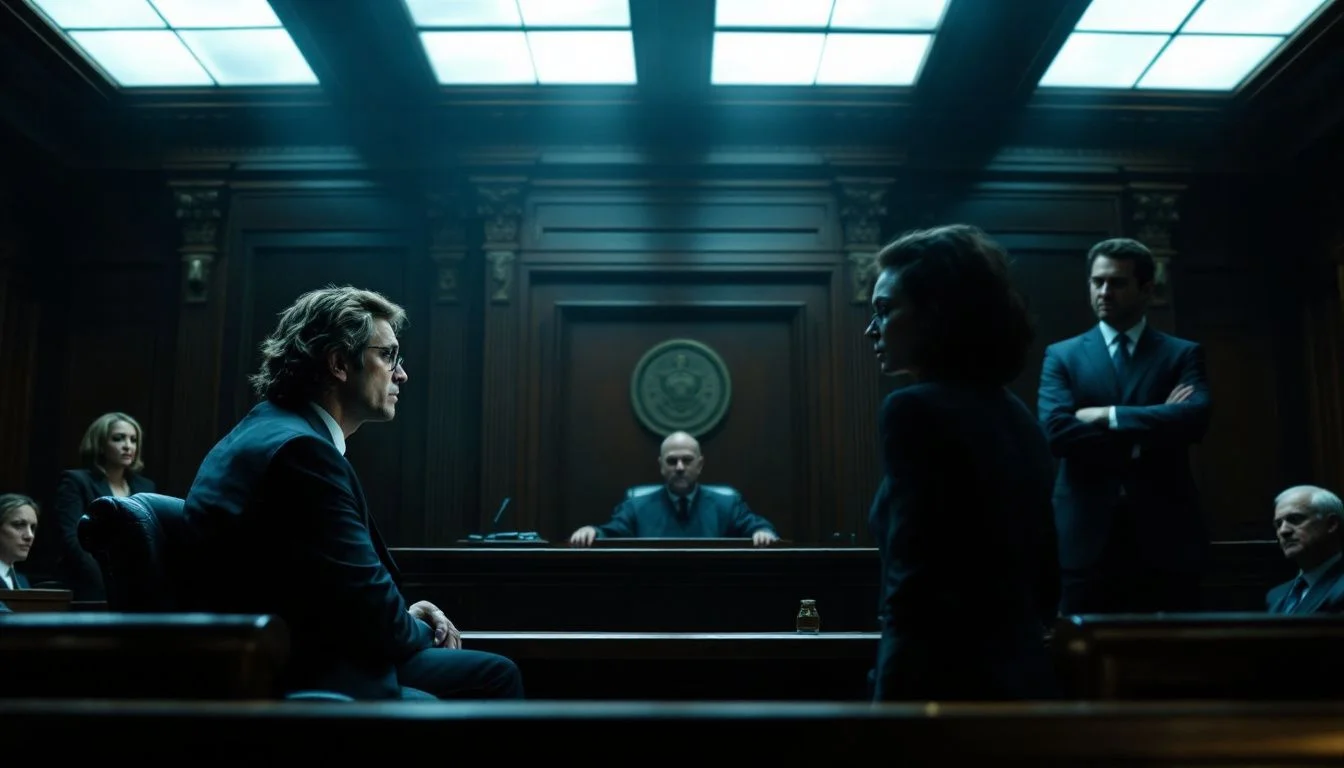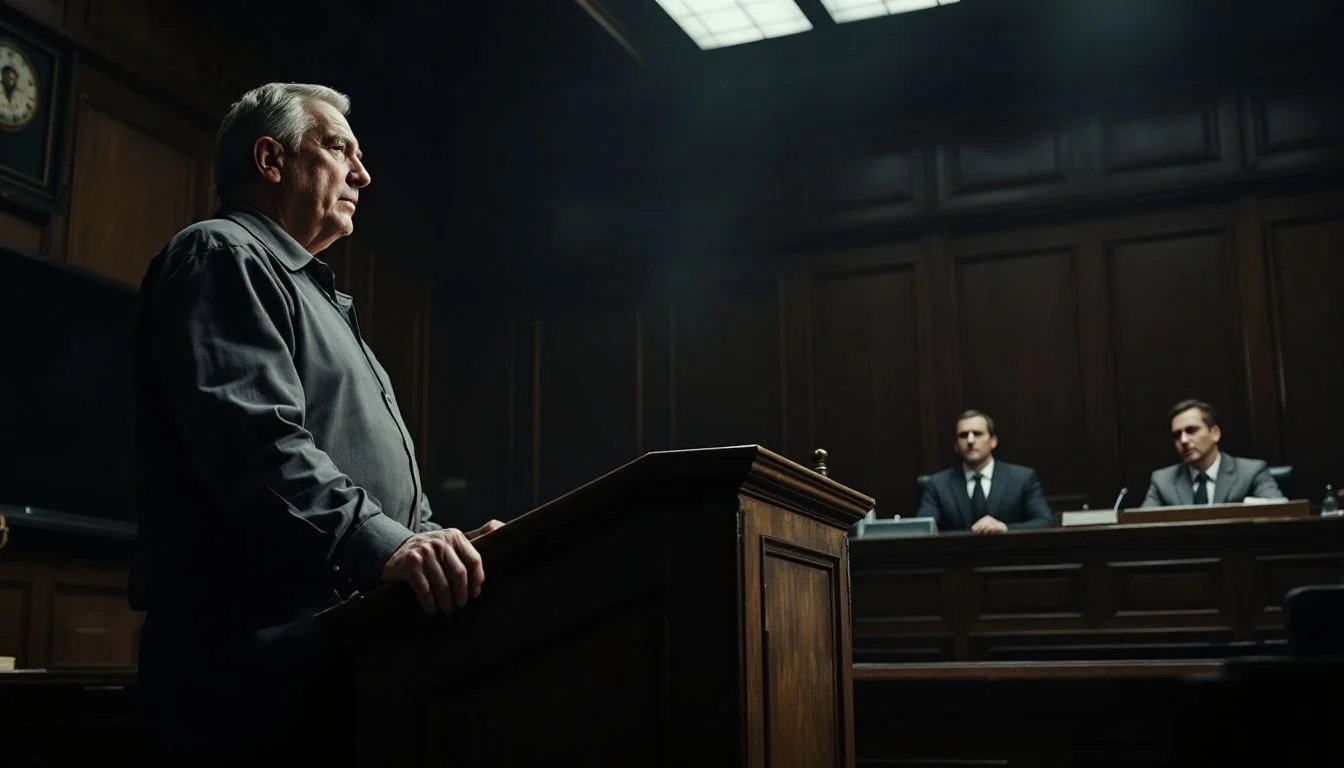Can You File BK on a Judgement? Here’s What You Need to Know
If you’re wondering can you file bk on a judgement, the answer is yes. Bankruptcy can discharge many types of debts, including judgments. However, the process isn’t always straightforward. Our guide walks you through how bankruptcy affects judgments, what you need to consider, and the steps involved in the process.
Key Takeaways
- Filing for bankruptcy is possible even when there is an existing judgment against you, as it provides a path to alleviate overwhelming debts.
- The automatic stay initiated upon filing for bankruptcy halts all creditor collection actions, offering immediate relief from legal pressure and wage garnishments.
- While bankruptcy can discharge certain personal debts and associated judgments, it does not automatically eliminate judgment liens; proper legal strategies and exemptions are essential for asset protection.
Filing for Bankruptcy with a Judgment Against You

You might wonder if it’s possible to file for bankruptcy when there’s a judgment against you. The answer is a resounding yes; bankruptcy aims to provide a fresh financial start despite overwhelming debts and judgments. A judgment does not change the dischargeability of the debt in bankruptcy, meaning you can still seek relief through the bankruptcy court.
However, while bankruptcy can discharge personal debts, it does not eliminate judgment liens, which remain attached to your property unless specific actions are taken to void them. Petitioning the court through an experienced bankruptcy lawyer can help navigate these complexities and potentially void certain liens during the bankruptcy process.
Pending lawsuits seeking judgments against you are also suspended once you file for bankruptcy, providing immediate relief from ongoing legal pressure. This suspension can often lead to the dismissal of these lawsuits, giving you the breathing room needed to reorganize your finances and prepare for a bankruptcy filing.
Hiring a bankruptcy attorney is crucial; they can protect your assets and ensure proper adherence to bankruptcy procedures, maximizing your chances of success. If you’re facing a judgment and considering bankruptcy, consult an experienced bankruptcy lawyer as your first step.
How Bankruptcy Affects Creditor Collection Actions

When you file for bankruptcy, one of the most immediate and powerful effects is the automatic stay. This court order stops all collection attempts by creditors, giving you much-needed respite from their relentless pursuit. This stay prevents creditors from initiating or continuing lawsuits, wage garnishments, or any other collection actions for the duration of the bankruptcy process.
Imagine the relief of knowing those harassing phone calls and letters will cease as soon as you file for bankruptcy, effectively pausing your financial stress. Even if a creditor already holds a judgment against you, the automatic stay can significantly impact their ability to collect. Although bankruptcy does not automatically discharge the judgment, it alters the dynamics, often leading to more favorable outcomes for the debtor.
Wage garnishments are a prime example of how creditor actions are affected. As soon as you file for bankruptcy, any wage garnishments in place are immediately stopped. This can provide immediate financial relief, allowing you to retain more of your income to manage your essential expenses and start rebuilding your financial stability.
Discharging Judgments Through Bankruptcy

Discharging civil judgment through bankruptcy can be a game-changer for anyone struggling with debt. If the underlying debt is dischargeable, the judgment associated with it can also be discharged, providing significant relief to the debtor. This is particularly relevant for personal debts, which can often be discharged, lifting the burden of judgment obligations and judgment debt. A bankruptcy discharge can help in this process.
However, while bankruptcy can discharge personal debt, it does not automatically remove valid liens associated with those debts. The Bankruptcy Code outlines specific guidelines for what types of debts can be discharged. Understanding these guidelines is vital for navigating bankruptcy procedures effectively and maximizing debt relief.
Lien Avoidance Strategies
Lien avoidance during bankruptcy is a strategy that can help eliminate a creditor’s lien on your properties. This can significantly lighten your financial load. To avoid a judgment lien, you must not have given consent to the creditor for the judgment. For instance, Molly successfully avoided her judgment lien because her equity was fully covered by exemptions, unlike Reggie, who could only partially avoid his lien due to some non-exempt equity.
If you’re dealing with a judgment lien against a vehicle, Chapter 7 bankruptcy can be particularly helpful. If the vehicle is exempt and valued under the state’s exemption limit, you can eliminate the lien. However, you must act quickly and follow the necessary bankruptcy procedures to ensure the lien is successfully removed from your property.
If you forget to handle the lien during your bankruptcy case, you can still file a motion to avoid the lien even after the case closes, offering a second chance to relieve significant financial burdens. This underscores the importance of timely action and a thorough understanding of bankruptcy procedures.
Handling Nondischargeable Debts
While bankruptcy offers relief for many types of debts, certain debts remain nondischargeable. These include student loans, child support, spousal support, and certain tax debts. Unfortunately, these debts cannot be erased through bankruptcy, necessitating alternative repayment plans.
For these nondischargeable debts, consider strategies such as negotiating a repayment plan. Chapter 13 bankruptcy, for example, allows you to repay these unpaid debts over time through a structured plan. This approach helps manage the balance owed and ensures that you can still work towards financial stability despite having nondischargeable debts.
Protecting Your Property During Bankruptcy

A critical aspect of filing for bankruptcy is protecting your property from judgment liens. By utilizing applicable exemptions, you can safeguard your possessions. You need to claim exempt status in your bankruptcy paperwork and file a timely motion with the court.
In Chapter 7 bankruptcy, the trustee may sell your property if your equity is greater than the exempt amount. They will return the exempt portion to you after the sale. In Chapter 13 bankruptcy, you are allowed to keep the property. You can do this by paying the nonexempt part through a repayment plan.
Consulting a bankruptcy attorney can help evaluate potential legal strategies and ensure your exemptions are handled properly.
Using Exemptions to Avoid Judgment Liens
Exemptions play a vital role in protecting your personal property during bankruptcy. To exempt property, you must have the right to keep it under federal or state law. These exemptions vary between states; some grant lien rights automatically, while others require a prior judgment filing.
If you can’t exempt an asset, the lien remains in place. However, if a judgment lien prevents property exemption, the court will likely agree to avoid the lien. For example, Henry managed to exempt $5,000 in equity from his vehicle, successfully avoiding the lien.
Claim your property as an exemption and file a motion with the court to protect it.
Filing a Lien Avoidance Motion
Filing a lien avoidance motion is a crucial step in protecting your assets from judgment liens. A judgment lien is established when a court ruling leads to a recorded lien against your property, allowing creditors to recoup debts. Chapter 7 bankruptcy can potentially protect your assets from being seized due to these liens.
Lien avoidance allows for either total removal of the lien or partial avoidance, reducing the lien amount to align with exemption limits. To initiate this process, indicate the exempt status of the property on your Statement of Intention and file a motion to avoid the lien. This can be done even after the bankruptcy case has begun, as asset values and exemption eligibility can change.
In situations where property lacks equity, it may seem impossible to avoid a lien. However, legal representation can identify circumstances that might still allow for lien avoidance. This highlights the importance of having a knowledgeable bankruptcy attorney guide you through the process.
Legal Considerations and Next Steps

Understanding legal considerations and next steps after filing for bankruptcy is crucial. Certain debts, like student loans, child support, and government debts, are nondischargeable and cannot be eliminated. If you’re facing such debts, Chapter 13 bankruptcy might be a better option, allowing you to repay these debts over time.
Meeting with a bankruptcy lawyer is essential for assessing your specific case and protecting your valuable property. They can help navigate the complexities of bankruptcy law, ensuring you take the right steps to regain financial stability.
Acting quickly and following appropriate bankruptcy procedures maximizes your chances of success. Whether dealing with pending lawsuits or trying to avoid judgment liens, understanding your legal options and acting promptly can make a significant difference.
Summary
Navigating the labyrinth of bankruptcy with a judgment hanging over your head can be overwhelming, but it’s far from impossible. By understanding how filing for bankruptcy can impact judgment liens, creditor actions, and your ability to discharge certain debts, you can make informed decisions to reclaim control over your financial future. The automatic stay triggered by filing bankruptcy provides immediate relief from creditor harassment, while strategic lien avoidance and proper use of exemptions can protect your valuable assets.
Consulting with an experienced bankruptcy lawyer is paramount in this journey. They can guide you through the complex bankruptcy procedures, help you avoid common pitfalls, and ensure that your rights are protected. Remember, while bankruptcy offers a pathway to dischargeable debt relief, certain debts like student loans and child support may require alternative strategies. Ultimately, taking timely action and seeking professional advice are key steps towards achieving financial stability and peace of mind.
Frequently Asked Questions
Can I file for bankruptcy if I have a judgment against me?
You can indeed file for bankruptcy even if there is a judgment against you. Bankruptcy is designed to help individuals alleviate financial burdens, including those arising from judgments.
How does bankruptcy affect creditor collection actions?
Bankruptcy significantly hampers creditor collection actions by instituting an automatic stay that halts all efforts, including lawsuits and wage garnishments. Consequently, creditors cannot pursue collection on existing judgments during this period.
Can a judgment be discharged through bankruptcy?
Yes, a judgment can be discharged through bankruptcy if the underlying debt is deemed dischargeable, but associated liens may require further legal action for removal.
What are some strategies for avoiding judgment liens during bankruptcy?
To avoid judgment liens during bankruptcy, it is essential to file a motion to eliminate the creditor’s lien on your property by adhering to the proper bankruptcy procedures. This proactive approach can help protect your assets effectively.
What should I do if I have nondischargeable debts?
If you have nondischargeable debts, consider negotiating a repayment plan or exploring the option of Chapter 13 bankruptcy to manage these obligations effectively. Taking proactive steps will help you address these financial challenges.


